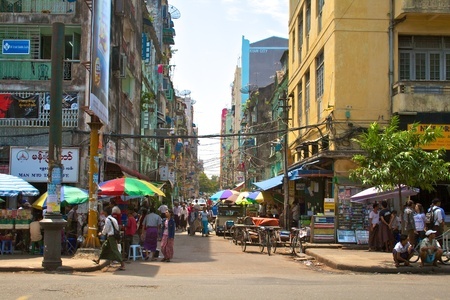8 February, 2016
Source – http://www.123rf.com/profile_axel2001
The 2015 landslide victory of Myanmar’s National League for Democracy (“NLD”) ushered out more than 50 years of direct military rule. After winning a decisive majority in the upper and lower houses of Myanmar’s parliament, the party now will form the next government. The change will bring about new opportunities and challenges for companies that want to invest in what many consider Asia’s last economic frontier.
Although the win is a watershed moment for the NLD and its famous founder Aung San Suu Kyi, investors need to be aware that the military will remain a force in the government. It has a constitutional right to 25 percent of the seats in parliament and has amassed power and influence over the years. And beginning in 2011, the military embarked on a series of economic reforms — critical to the country’s survival — that were championed by former President Thein Sein.
Myanmar once was the envy of Southeast Asia. In the 1950s, for example, Singaporeans went there for medical training. But after the 1962 military coup d’état, the country closed itself off from much of the world and became a pariah and economic backwater. Today, only about 25 percent of the population has access to electricity. Only about 50 percent of the citizens have a cell phone.
The NLD wants to change this and continue with economic reforms while expanding civil rights. For example, the party already has announced its intention to release political prisoners and fight corruption. By March 2016, NLD leaders will have appointed the head of all key ministries, including Finance, Commerce and National Planning. Many ministers and other officials will come from the party’s ranks; each will have a background in political and social activism. But, collectively, they will have little experience governing a country or supporting local or overseas businesses.
This lack of expertise certainly will create new roadblocks and bureaucratic snafus. But it also presents a chance for those interested to engage with the country’s leaders. The NLD is pragmatic. It came to power via elections, not uprisings. There is every reason to believe that the party will be as receptive to advice from outsiders as the former government was. For instance, under Thein Sein, Myanmar sought advice from professionals at major oil companies to help determine the best policies and approaches for the country’s energy sector.
Developing productive relationships with government officials will be essential to a foreign company’s success in Myanmar. State-owned organizations such as Myanmar Oil and Gas Enterprise will be a vital part of the economy for some time to come. In addition, large conglomerates in key industry sectors such as finance and mining are controlled by oligarchs with military and government ties. These elites will remain part of the landscape, and, in industries that still are protected, it will be necessary for foreign companies to know the important players and work with them.
The Bottom Line
Myanmar offers tremendous possibilities for investors that do nurture collaboration with the country’s government and business leaders. With a population of approximately 52 million, Myanmar will be a significant market for many goods and services.
Moreover, as the country modernizes, there will be huge opportunities to build infrastructure such as roads and power supplies.
The investment outlook should be one of cautious optimism. Processes likely will become increasingly complicated, and investors may have to navigate a complex web of multiple ministries and local governments. Thus, understanding those who take the reins in March, and engaging with them, will be the critical factor for success.
For further information, please contact:
Romain Caillaud, Senior Director, FTI Consulting
roman.caillaud@fticonsulting.com






